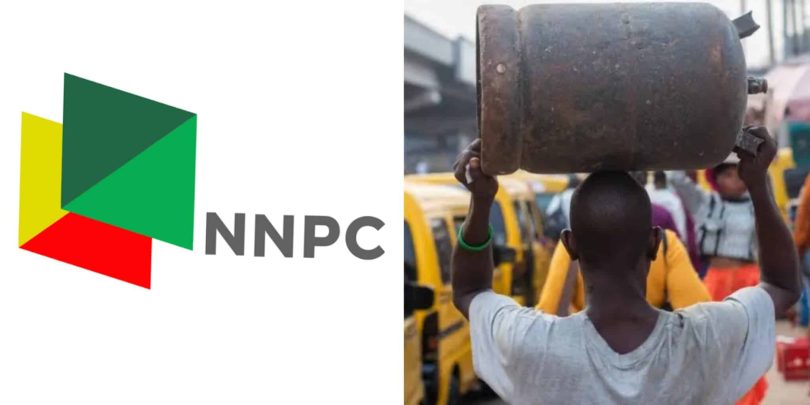The recent spike in cooking gas prices in Nigeria has been linked to a temporary disruption in loading and distribution caused by the Petroleum and Natural Gas Senior Staff Association of Nigeria (PENGASSAN) strike.
The strike, which halted operations at major facilities for several days, created an artificial shortage that briefly affected supply nationwide.

Speaking to State House correspondents after a meeting with President Bola Tinubu, the Group Chief Executive of NNPC, Bayo Ojulari, explained that the industrial action delayed movements and deliveries by about two to three days.
According to Ojulari, this temporary bottleneck contributed significantly to the observed surge in gas prices.
He assured Nigerians that as operations return to normal, the supply chain is stabilising, and the price of cooking gas is expected to ease in the coming weeks, returning closer to pre-strike levels.
Retailers’ opportunism exacerbates the situation
Ojulari also pointed to opportunistic retailers as another factor behind the recent price increase.
With the shortfall created by the strike, some merchants leveraged their reserves to hike prices beyond the actual market impact.
“My expectation is that now that things are back to normal, prices should return to what they were before the strike,” Ojulari said. He stressed that the spike was not solely due to the strike but was intensified by such market behaviour.
The NNPC boss highlighted that monitoring mechanisms are being strengthened to prevent similar opportunistic pricing in the future and ensure that Nigerian households have access to cooking gas at reasonable rates.
Dangote agreement helps restore supply
Operations at the Dangote Refinery, which were affected by the strike, have resumed following a redeployment of affected staff as agreed between the Dangote Group and the federal government.
This development has begun easing supply bottlenecks and stabilising gas availability across the country.
Ojulari emphasised that the short-term price fluctuations were temporary and largely resolved as supply channels were restored.
He urged consumers to remain patient, noting that normal market conditions would gradually return as distribution networks stabilise.
The federal government continues to monitor the situation closely, working with industry stakeholders to ensure consistent supply and prevent future disruptions.

